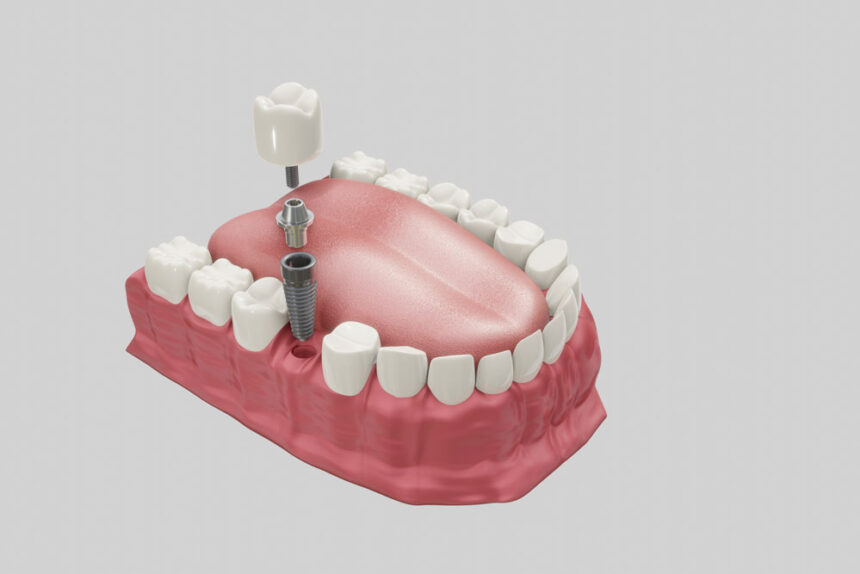Restorative dental procedures manage issues affecting the teeth and their supporting structures, aiming to restore oral function and appearance. These treatments can range from simple fillings to more complex solutions for missing teeth. Dental implants are a restorative treatment method that replaces an entire tooth, from the root to the crown. Here’s more information on dental implants and how they can benefit your smile:
Oral Functionality
A dental implant is a small, threaded post, typically made of titanium, that is surgically placed into the jawbone to replace a missing tooth root. This post serves as an anchor for a custom-made restoration, like a crown, bridge, or denture. The primary goal of a restoration with dental implants is to restore both functionality and aesthetics to your smile. By replacing the missing tooth root and providing a stable foundation for customized restorations, dental implants enable healthy oral mechanics, affecting function and structure. Implants help preserve jawbone density by stimulating natural bone growth, reducing the risk of bone loss associated with missing teeth.
Preventing Bone Deterioration
When a tooth is lost, the area of the jawbone that once supported it no longer receives the same level of stimulation. This may lead to a reduction in bone density in that specific area of the jaw over time. Dental implants are unique because they transmit chewing forces directly to the jawbone, similar to a natural tooth root. This process helps support local bone stimulation and maintain tissue volume.
Maintaining Alignment and Structure
Gaps left by missing teeth can cause adjacent teeth to shift into the empty space, which affects bite alignment. Filling these gaps with implant-supported restorations helps keep neighboring teeth in their proper positions. This helps maintain the natural alignment of your smile. It also provides fixed points of contact that support the structure of your face and jaw.
Natural Smile
Dental implants are designed to integrate seamlessly with your natural teeth, as the crowns or prosthetics attached to the implants are customized. Implant crowns are crafted to match the size, shape, and color of your existing teeth. Once in place, implants are virtually indistinguishable from natural teeth in look and function.
Speech and Eating
Because implants integrate with the bone, they provide a stable base for the replacement tooth, which may contribute to clearer speech. Unlike some removable options that may shift, fixed implants can help facilitate more consistent tongue placement for proper articulation. This stability allows individuals to speak more easily, as the prosthetics are securely held in place.
The ability to chew food effectively relies on a stable and balanced bite. When teeth are missing, the distribution of bite force can become uneven, and removable prosthetics may sometimes shift during a meal. Dental implants provide a fixed and stable foundation for restorations, which helps distribute chewing forces more evenly across the jaw. This stability can make chewing mechanics more predictable, so individuals may find it easier to eat a wider variety of foods.
Learn More About Dental Implants
Dental restorations are available to add support and improve your oral functionality. For personalized guidance and to determine if this option is suitable for your specific circumstances, contact a dentist today. They can offer a comprehensive evaluation and discuss appropriate treatment pathways based on your individual oral health needs.





